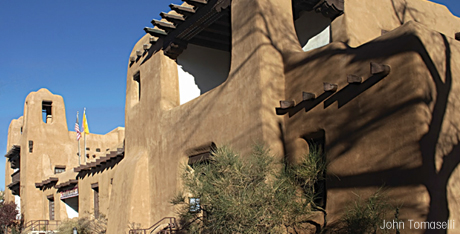I walk every day. I swim a couple times a week. I shoot hoops with my 13-year-old son. I bound up and down the stairs.
At least, I used to.
The pain began innocently enough, with a swollen finger, then a pinch in my left hip that feels, every now and then when I put my left foot forward, as if my skin is seeping under my pelvic bone and getting stuck on the bottom of it on the way out. I go for an x-ray.
The x-ray is normal. Therefore, I am fine. I continue on with my life until my entire pelvic area begins to ache and walking becomes difficult.
I begin to doubt my pain. I begin to doubt myself.
A rheumatologist tells me I don’t have arthritis. He sends me to PT. Still, he runs blood tests for conditions like psoriatic and rheumatoid arthritis, ankylosing spondylitis, Sjogren’s, and lupus — all negative. And I learn something: 20% of people with arthritis test negatively for the condition. Still, I begin to doubt my pain. I begin to doubt myself. Surely this pain is a figment of my imagination.
After a two-hour PT appointment, the pain worsens. My body is breaking down and taking me down with it. I avoid taking the Tramadol, but my siblings convince me it’s better than being in pain. I begin to bargain with God. “God, I get it. You’re telling me to slow down. If I listen, You’ll stop the pain, right?”
When you’re in pain, you’ll try anything.
I meet with more doctors. The headlines: Prednisone. MRI. Spondylitis. Rheumatoid arthritis. Steroid shots in my sacroiliac joints, my left hip. More Prednisone. Another steroid shot in the left hip. A referral to a PT who specializes in hips, who is out on medical leave and for whose return I must wait three weeks. There’s no consensus and little relief.
I call my naturopath who puts me on a three-day water fast. I last two days, but I am in less pain. I feel more human. Maybe my condition is related to diet? On his advice I go off gluten, soy, corn, dairy, and cane sugar. I begin Zyflamend and Curcumin, double my fish oil, use parsley, ginger and garlic and add turmeric, cloves, and other spices known to relieve inflammation.
If you had told me 10 months ago that I’d be off ice cream, candy and coffee, and that I’d be obsessively purchasing organic eggs, fruits and vegetables, I would have said, “No way.” But I’m doing just that. When you’re in pain, you’ll try anything.
You forget who you were. You become pain.
Pain changes you. You are not yourself. You don’t know who you are. You forget who you were. You become pain. You say “my pain” not “the pain,” as if you’ve willingly accepted a gift. You’re tired of talking about your pain. You want to talk about other things, but that’s all that seems to matter. You imagine the people asking about your pain are tired hearing about it. Depression sets in. You fear you will never be yourself; that living in pain is your new normal. Your mind takes you to places you don’t want to go.
So what do you do?
You choose to learn from your pain.
I learned gratitude. Gratitude for the years I lived without pain that I never fully appreciated. Gratitude to the nurses and aides who held my hand when the doctors stuck needles into my joints. Gratitude to the family and friends who called or visited when I was at my worst, who took me to doctors, who listened, who brought me food, even if I couldn’t eat it. Gratitude (somewhat) for the experience of being in pain so that I’m better able to understand others who are in pain. Gratitude for the good days.
I’m scheduled to meet two close friends in Santa Fe for a weekend. Should I go? Will I be able to carry my luggage, sit on the plane, or change planes? I must go. I must see my friends. One had a pelvic sarcoma removed last year but has recurrent lymphedema and blot clots, as well as fluid painfully accumulating in her hip. The other suffers with arthritic knees and shoulders. She’s down a gall bladder, a spleen, most of a pancreas and a kidney; her working kidney is filling with stones. And then there’s me. A fine crew we make.
We spend the weekend remembering old times, filling each other in on our current lives: husbands, children, careers, health, disappointments and joys. We laugh. We cry.
And we walk, each of us shuffling along, grateful to be together.



